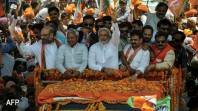Imran Khan’s philosophy is that Pakistan has been fighting with Taliban for years but terrorism has only increased so we must try to have negotiations. Why do you think he is being criticized for this?
The problem is that talks with the Taliban is a tactic, not a strategy. Counter terrorism should be a comprehensive strategy that includes elements of talks and use of force. To implement that strategy we need a national security council, which should include the military, civil government and civilian experts who deal with terrorism on a daily basis, write about it and understand the nuances. We can’t wipe these terrorists out in a one-day operation or through a one day dialogue. The mistake being made here is that a tactic is being made a strategy, which in my opinion is completely wrong.
Americans tried to have a counter terrorism strategy in Afghanistan and on paper what they were planning to do in 2007 and 2008 was a very sound strategy but like Pakistan they completely failed to implement it. They did not have enough troops, did not put enough emphasis on the reconciliation on the talks aspect and emphasized on the war aspect. We are doing completely the opposite by deemphasizing other aspects and emphasizing the talks. This is where I think Imran Khan is coming from and why I think he is at the wrong end of the stick. It is unfortunate that a man as worldly wise as Imran is accusing anyone who is criticizing his policies as being pro west, liberal or an agent of the CIA. He is using the same jargon as extremists do or as elements in the intelligence services do.
Do you think Imran Khan’s supporters have been disillusioned because of his talks with Taliban stance?
His vote bank has definitely been affected. We saw that in the bi-elections too as Bilour came back in Peshawar. Imran faces a mass decline of morale in the police and bureaucracy in KPK. He does not have the support of the local administration because they are confused as to why they should be laying down their lives for suicide bombers when Imran wants to talk to the same bombers. He has created confusion in the minds of the federal government and the army. The danger of insurrection in Peshawar by these extremists is quite possible despite the huge army presence there. Unless Imran will deal with these issues more firmly than he has so far, he may lose the province. We may see governor’s rule there in a few months time so he has to understand the situation is critical.
What did you think of his statement on letting Taliban open an office in the country?
Imran has been trying for a long time to equate the Afghan Taliban to the Pakistani Taliban. Afghan Taliban in my opinion have a peace lobby that has matured in the last few years of fighting because they believe that after 2014 withdrawal of US forces, they have to come to terms with other Afghans and want some kind of power sharing deal. There is no such lobby in the Pakistani Taliban and nobody who is talking about compromising with the state. Their mantra is still that we want to over throw the state and want sharia. Imran is talking about opening an office when there is no Taliban to man this office or interested in a peace dialogue. Because of his prejudices and his preconceived notions he is not able to differentiate between Afghan Taliban and Pakistani Taliban and the real tragedy is he thinks he knows it all.
IK recently said Taliban’s demand to stop the drone strikes was a legitimate one and should be supported by all. Do you agree?
Drone strikes should stop but not on the basis of what the Taliban want. The strikes should stop because it is creating enormous anti Americanism in Pakistan and complicates the war on terror strategy that Pakistan would like to have. It allows for propaganda by the extremists and the Taliban, which is anti American and anti Western and that tends to become anti democratic also.
Now that General Kayani has decided to retire, what do you foresee in the post Kayani period?
It is too early to say. Kayani’s legacy is that he has strengthened democracy and allowed elections to continue unlike earlier military leaders. However, on the other hand, he has left a terrible legacy of a much worse security situation, expansion of suicide bombings, the continuing insurgency in Balochistan and a worsening situation in Karachi.
Do you think Pakistani army is capable of fighting a prolonged war?
Yes, it is capable and we have no choice if we are to survive as a nation. Any counter terrorism strategy will take years. It won’t be resolved in six months or one year and will be beyond the life of even this government. We should be prepared for a long war and so should the army. The failure of the government and the army has been to confuse people’s minds with this idea that there are quick solutions. This extremism has taken years to be fostered and expand. We can go back 40 years to Zia’s period to the growth of this kind of extremism, not to speak of the fact that the state and the army sponsored a lot of these groups at one point including the groups fighting in Kashmir and those fighting with Taliban in Afghanistan.
What is your assessment of the civilian leadership. How do you think they will tackle the issue?
I am glad that we have had two successive governments. What has been lacking in both these governments is a comprehensive reform agenda, whether we are talking economic reforms or combating terrorism, social reform or need for education, there was a lot of expectancy with Nawaz Sharif coming in but we haven’t seen those policies emerge. I think there is a growing disillusionment even within the Sharif camp about the failure to carry out reforms on any front. Even the promise of economic reforms and the austerity measures that were needed to get international confidence have not occured.
Americans say they will leave Afghanistan by 2014 and the elections are approaching, what would be the fall out of this on Pakistan?
We do not know yet if the Americans will even leave bases in Afghanistan as that is still being negotiated with the Karzai government. But the uncertainty in Afghanistan, the uncertainty surrounding those elections, the withdrawal, the capacity of Afghan army to hold back the Taliban, all these uncertainties have a hugely negative effect in Pakistan. If we don’t know what will happen in our neighboring country, we can’t really say with any confidence that we will be safe from any fallout because obviously we won’t.
IK said if negotiations fail he would reluctantly support military options against the Pakistani Taliban. What do you think of this?
The debate in the country has been put as either war or talks. This is not a strategy for counter terrorism. You have to combine both these elements. IK is framing the debate as every other politician and extremist, that there is a choice between talks and war.
What is the future of Pakistani Taliban?
The situation will get much worse before it gets better. We saw an attack on 4 provincial capitals, which was unheard of before. With the kind of bomb attacks we have seen in Peshawar and before that the campaign in Quetta against the Hazaras and the jailbreaks, the state seems unable to combat any of this. Because of the politicians attitude there is a loss of morale in security forces, in believing this political leadership will provide the answers. It is clearly not providing the answers.
You mentioned in your recent book, “Pakistan on the Brink,” that you are constantly looking for a window that will open for peace to emerge in Pakistan. Will it?
The key issue is the civilian supremacy. Military has to understand they cannot continue running on their own. Their policy towards extremists has always been to favor some groups and attack other groups. The good Taliban and bad Taliban have to come to an end. In Balochistan the need for a dialogue is possible and a settlement with the separatists is possible. The state says it wants a dialogue but at the same time there have been 500 disappearances since Nawaz Sharif came into power.
If you want a dialogue there has to be some sort of a halt to violence so that talks can take place. We need to have zero tolerance policy against all forms of extremism, even against those extremists who have been trained and nurtured by the intelligence services. We need to turn this policy around otherwise we will go down as a country.
Do you think IK will be able to deliver on his promises?
He won’t deliver on his promises because of the strategies that he has. He should engage in a debate about a strategy for counter terrorism. I would like to engage with him in a debate on counter terrorism and what it means so I can try and explain to him that talks can be part of the strategy but it cannot be the whole strategy.
The writer is a Lahore based journalist. She tweets @MinaSohail
























